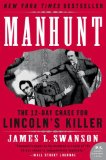Summary | Excerpt | Reviews | Read-Alikes | Genres & Themes | Author Bio

The Years of Lyndon Johnson
by Robert A. CaroBook Three of Robert A. Caro's monumental work, The Years of Lyndon Johnson---the most admired and riveting political biography of our era---which began with the best-selling and prizewinning The Path to Power.
Book Three of Robert A. Caro's monumental work, The Years of Lyndon Johnson---the most admired and riveting political biography of our era---which began with the best-selling and prizewinning The Path to Power and Means of Ascent.
Master of the Senate carries Lyndon Johnson's story through one of its most remarkable periods: his twelve years, from 1949 to 1960, in the United States Senate. At the heart of the book is its unprecedented revelation of how legislative power works in America, how the Senate works, and how Johnson, in his ascent to the presidency, mastered the Senate as no political leader before him had ever done.
It was during these years that all Johnson's experience---from his Texas Hill Country boyhood to his passionate representation in Congress of his hardscrabble constituents to his tireless construction of a political machine---came to fruition. Caro introduces the story with a dramatic account of the Senate itself: how Daniel Webster, Henry Clay, and John C. Calhoun had made it the center of governmental energy, the forum in which the great issues of the country were thrashed out. And how, by the time Johnson arrived, it had dwindled into a body that merely responded to executive initiatives, all but impervious to the forces of change. Caro anatomizes the genius for political strategy and tactics by which, in an institution that had made the seniority system all-powerful for a century and more, Johnson became Majority Leader after only a single term---the youngest and greatest Senate Leader in our history; how he manipulated the Senate's hallowed rules and customs and the weaknesses and strengths of his colleagues to change the "unchangeable" Senate from a loose confederation of sovereign senators to a whirring legislative machine under his own iron-fisted control.
Caro demonstrates how Johnson's political genius enabled him to reconcile the unreconcilable: to retain the support of the southerners who controlled the Senate while earning the trust---or at least the cooperation---of the liberals, led by Paul Douglas and Hubert Humphrey, without whom he could not achieve his goal of winning the presidency. He shows the dark side of Johnson's ambition: how he proved his loyalty to the great oil barons who had financed his rise to power by ruthlessly destroying the career of the New Dealer who was in charge of regulating them, Federal Power Commission Chairman Leland Olds. And we watch him achieve the impossible: convincing southerners that although he was firmly in their camp as the anointed successor to their leader, Richard Russell, it was essential that they allow him to make some progress toward civil rights. In a breathtaking tour de force, Caro details Johnson's amazing triumph in maneuvering to passage the first civil rights legislation since 1875.
Master of the Senate is told with an abundance of rich detail that could only have come from Caro's peerless research---years immersed in the worlds of Johnson and the United States Senate, examining thousands of documents and talking to hundreds of people, from pages and cloakroom clerks to senators and administrative aides. The result is both a galvanizing portrait of the man himself---the titan of Capitol Hill, volcanic, mesmerizing---and a definitive and revelatory study of the workings of personal and legislative power. It is a work that displays all the acuteness of understanding and narrative brilliance that led the New York Times to call Caro's The Path to Power "a monumental political saga . . . powerful and stirring."
 Jean Strouse
Master of the Senate is vintage Caro--a portrait so deft, vivid, and compelling that you practically feel LBJ gripping your arm and bending you to his will.
Jean Strouse
Master of the Senate is vintage Caro--a portrait so deft, vivid, and compelling that you practically feel LBJ gripping your arm and bending you to his will. Ron Chernow
In this magnificent work, Robert Caro has given us the grand and absorbing saga of Lyndon Johnson, the U.S. Senate, and the Democratic Party at mid-century. The richly cadenced prose is hypnotic, the research prodigious, the analysis acute, the mood spellbinding, and the cast of characters mythic in scale. I cannot conceive of a better book about Capitol Hill. An unforgettable, epic achievement in the art of biography.
Ron Chernow
In this magnificent work, Robert Caro has given us the grand and absorbing saga of Lyndon Johnson, the U.S. Senate, and the Democratic Party at mid-century. The richly cadenced prose is hypnotic, the research prodigious, the analysis acute, the mood spellbinding, and the cast of characters mythic in scale. I cannot conceive of a better book about Capitol Hill. An unforgettable, epic achievement in the art of biography.
If you liked Master of the Senate, try these:

by James L. Swanson
Published 2007
A fascinating tale of murder, intrigue, and betrayal. A gripping hour-by-hour account told through the eyes of the hunted and the hunters, this is history as you've never read it before.

by David Maraniss
Published 2004
Moving between the campus at Madison and the jungles of Vietnam, with side trips to Hanoi and Washington, the tale unfolds with a magisterial sweep that recaptures the war and its era, filled with moral ambiguity and moral conviction.
The worst thing about reading new books...
Click Here to find out who said this, as well as discovering other famous literary quotes!